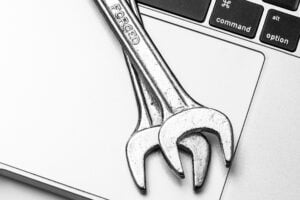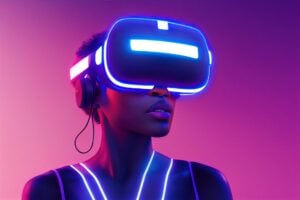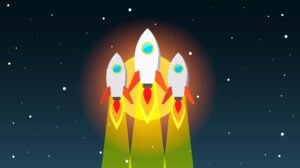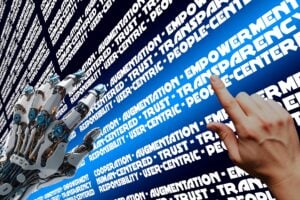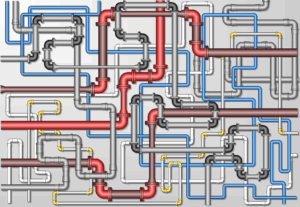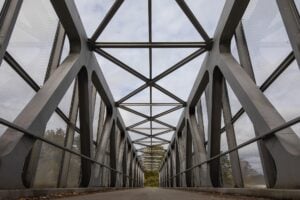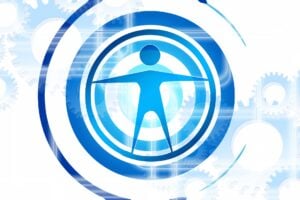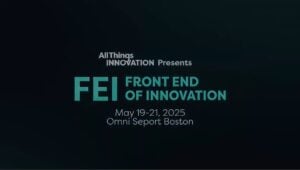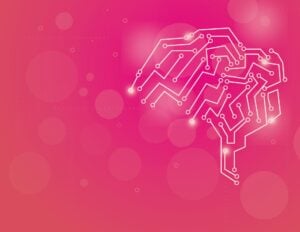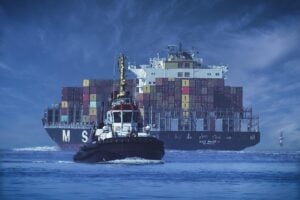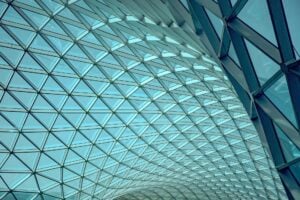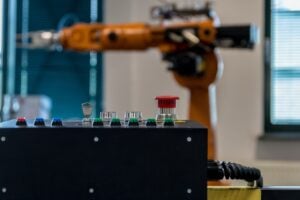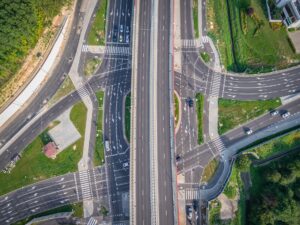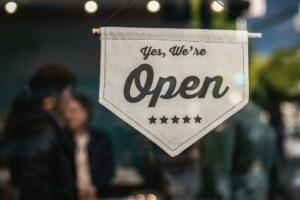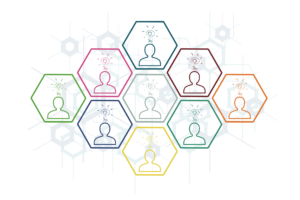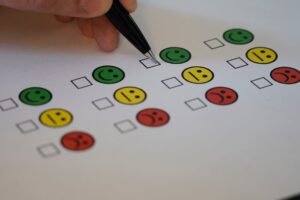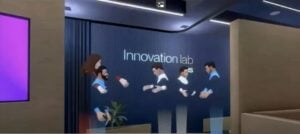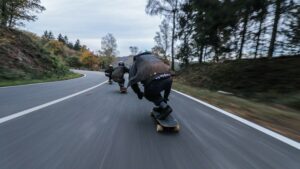The second annual FEI25 Collective Intelligence Startup Competition featured twelve innovative startups leveraging AI with human intelligence to solve critical business challenges. Trengrove from Neoclease won the first prize of $20,000, while Roger Dias from Xtory took second place with $5,000. The competition showcased how collective intelligence can transform industries from healthcare to finance, with each founder demonstrating unique approaches to combining human expertise with AI capabilities.
The Neoclease Mission
First, congratulations on winning the FEI startup competition. Thanks for sitting down to chat with All Things Innovation. For the benefit of the online audience, and those who might not have attended the conference, can you give us the elevator pitch on Neoclease?
“Neoclease has really been focused over the past two years on building better genetic medicines,” says Trengrove. “We’ve all seen the headlines on gene editing over the past few years. The promise of genetic medicines is that with a single dose, you can potentially have a curative therapy for almost any genetic disease. But there have been a lot of hurdles in the industry today. The editors that we see are too large to deliver to most tissues in the body. They have immunogenic effects, so immune reactions in the body. And then there’s really a lack of specificity and efficacy for any sort of real durable editing, in vivo in humans. We believe that that’s because of the one-size-fits-all approach that the industry has taken using a single protein like the CRISPR Cas9 system to target the entire spectrum of the genome.”
To break down those barriers is one angle that Neoclease takes in its groundbreaking approach.
Trengrove notes, “At Neoclease, we’re really focused on optimizing every editor for an individual gene, so it’s more of a lock and key approach to genetic medicine design. And we’re only able to do that today because of generative AI. We’ve built this large language model. It’s a little bit like ChatGPT for proteins, trained on three million known proteins that can cut the DNA. We can now look at a target gene and back build from there. We really get to look at what are the features that we need for that gene? And then we can generate hundreds of thousands of editors for that individual gene and then run all of those editors through this Insilico validation pipeline that we’ve built, with a lot of support with Amazon, Nvidia and other great partners in the ecosystem.”
“Now we’ve developed a therapy for Parkinson’s that we’re just bringing into the wet lab for further validation. We’re really excited to look at the data in the coming weeks,” she says.
Bringing a Collective Intelligence Approach
You have mentioned some of the barriers and challenges to gene editing today, and the solutions that Neoclease offers. Meanwhile, the theme of the competition was collective intelligence, blending human skills and insights with AI. How does the company bridge this theme?
“I feel like AI is going to become intertwined so deeply in every industry, and we’re really going to be seeing that in biotech in the coming years. We’ve already seen the first threads of it with the first totally AI-developed drugs, which just reached phase two clinical trials,” says Trengrove.
She continues, “What we’re developing, AI is so integral to accelerating the development and discovery of these new types of technologies. But you also really need the human know-how starting from the initial target selection, and understanding what is going to be the best gene to go after to inputting into these models. What are the features that we’re looking for? What’s really needed to ensure that we’re looking at the right factors that are going to make these editors very functional? And then everything that we’re building has to then be translated into the wet lab. So, identifying the top candidates that we want to bring in and then translating that into the in vivo design moving forward. There’s a lot of integration of both the AI and the human elements in what we’re doing.”
Takeaways from FEI
Discussions about bringing the human element into the AI framework was a highlight of the FEI conference, this renewed sense of integrating AI and human insights to innovation. What were some of your takeaways from FEI?
“The event was fantastic,” she says. “There was this integration of all of these different industries and people who are really looking at innovation, and it reminded me how important community is for any type of innovation. I think what really drives us internally at Neoclease and innovation in general is the constant curiosity and questioning, deeply diving into what are the problems and solutions that we can address. It’s really through a community like that where you have all of these different inputs from different industries and backgrounds that enables deeper questioning and curiosity. And I think that we really saw that at the conference, and that’s also something that we really try to bring into Neoclease.”
Starting Up with Uncertainty
The startup world is so important to corporate innovation and the front end of innovation. What are some of the barriers that you faced as a startup? Startups have their own particular sets of challenges.
Trengrove relates, “This is the first company that I’ve started, while I’ve been a part of startups in the past. I’ve been in big pharma, different walks of life, neuroscience as well. One of the things that’s been an interesting challenge and something that I’ve learned a lot from in this startup founder’s journey is learning to be comfortable with uncertainty. There are all of these time points throughout the company where we sort of felt like, oh my, this is going to be it. This is the end. But you find these creative solutions to work around it, and you realize that there are these moments when you feel if it doesn’t work exactly like this, there’s no other way. You start to realize that you can really think in different ways to make things happen and that drive and persistence can move through those moments. It’s really learning to level up continuously. Uncertainty has been a big lesson for me.”
She adds, “I would say biotech and tech bio in general, it’s a very difficult time in the industry just in terms of funding. So that’s been a challenge, but I think it’s also part of what I enjoy as well. Companies that are really innovating and creating good technology, I think those will continue to flourish. It has been a time of scrappiness, which is just something that that I think is in the ethos of Neoclease in general and something that we enjoy as a company—figuring out creative ways to solve problems without a lot of resources.”
A Vision of the Future
It’s an exciting time in many industries with the developments in AI. How do you see the future playing out in the industry of gene editing and biotechnology?
“We’re just at this tipping point of how AI is going to be integrated into technology. There’s going to be an accelerated phase of discovery and development. Because of AI, we’re able to process these enormous datasets,” says Trengrove. “Now we’re going to learn so much more about human biology, and that will enable much better medicines. I really believe that genetic medicines are going to be medicine in the future. If you don’t have to take a lifelong therapy, if you can take a single dose, that will be a curative for you. That’s where this technology is going to move.”
Gene editing will take a stride forward, and the future looks bright for these types of medicines and therapies.
“As we learn more about human biology, I think we’re going to see new sorts of precision diagnostics and earlier diagnostics where we’re going to start to be able to treat diseases much earlier,” predicts Trengrove. “And eventually, we’ll get to prophylactic editing where disease will become something hopefully of the past where we can really understand your personal genome and your biology and understand that you might develop this oncology, this cancer in the future, or this neurodegenerative disease. How can we treat you ahead of time or encourage you to live a healthier lifestyle so that never even happens?”
She adds, “That’s what I’m really excited to start to build into our company as well. I think that’s where medicine is going to start to move, it will be a seamless transition from treating you when you’re sick to eventually walking back to treatment when you’re just getting sick to eventually before you’re ever sick.”
Contributor
-

Matthew Kramer is the Digital Editor for All Things Insights & All Things Innovation. He has over 20 years of experience working in publishing and media companies, on a variety of business-to-business publications, websites and trade shows.
View all posts

